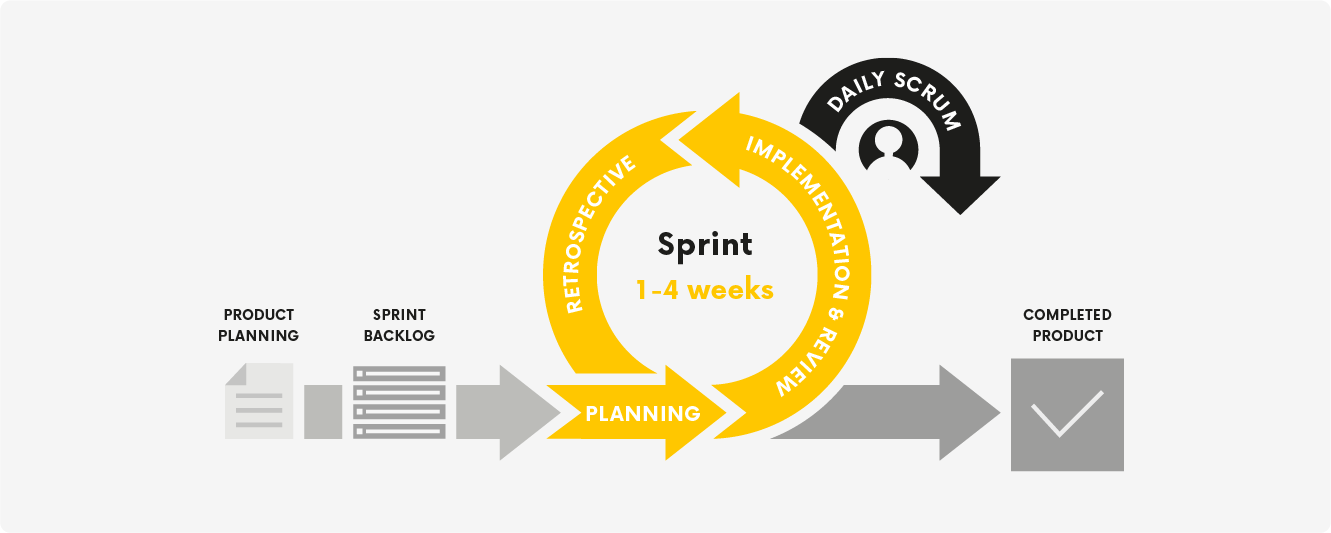
Table of Contents
What really is a software development partner?
An IT partner is most often an external entity, a specialized software development company that partners with a company to provide expertise, resources, and support in the development and implementation of software solutions. Such partnerships involve collaboration in designing, developing, testing, and implementing software applications or systems tailored to a company’s specific needs. The extent to which an external partner is involved in software development depends on the company’s specific needs. It can provide comprehensive software development services, from requirements analysis and design to coding, testing, and deployment. Alternatively, it can focus on specific aspects of software development, such as front-end or back-end development, mobile application development, or cloud architecture setup.9 Tips for the right enterprise software development partner
1. In-depth understanding and support
A third-party company that is a good partner understands the challenges of software development well and supports digital transformation. They take the right amount of time to understand your company’s specific needs and align with your business goals. With a clear understanding of your goals, they can offer customized solutions to meet your unique challenges. When evaluating potential partners, look for those with demonstrated experience in successfully understanding and solving similar problems for other medium-sized companies. Evaluate their experience in front-end and back-end development to ensure they can complement your expertise and enable you to handle complete projects, not just parts of them. This, therefore, requires competent developers whose point of view will be similar to yours so that they can, in your language, develop solutions for your tools and processes. By working with a team that understands your software development problem, you can leverage their experience to create a better workplace for your engineers and drive business growth.- Tip for you: Check out methods for researching the needs of potential partners
2. Experience in modernization and innovation
Stagnant business growth, loss of projects, and difficulty in hiring and retaining employees are often caused by outdated technology. Older code and outdated systems make it difficult to take on new projects. To address this, the company needs a partner with experience in modernization and innovation. It should have experience in:- A thorough understanding of the existing technology infrastructure
- Modernization strategy to improve the processes of the current infrastructure
- Building a new architecture that complies with current industry standards.

- Tip for you: Sometimes you hear the phrase that “this project is easier to rewrite than to redesign.” From the programmers’ point of view, this is often the right approach, especially if the code is not written well. However, from a business point of view, such a path usually does not make sense because it is better to tire even with a badly written project and refactor it piece by piece (change, modify it without changing the functionality), than to write everything from scratch. So check if the partner tries to understand your design problems or if he convinces you to write a new application without effort or solid arguments.
3. Security priorities
A reliable software development partner must now prioritize system security. Cybersecurity threats are constantly evolving, and your business needs to be protected. That’s why it’s imperative that you make sure the partner you choose follows industry best practices, has robust security measures in place, and complies with data protection regulations. With enhanced system security, you can reduce the risk of data breaches and protect sensitive information, earning the trust of your customers and reducing the fear of losing them to competitors.- Tip for you: check whether the SH in question has ISO9001 or ISO27001 certifications. The certifications in question already show a certain awareness of SH regarding safety, and introducing certifications requires arranging processes internally, preparing the entire office for the new reality, and spending a lot of time on it. A certified partner is synonymous with security.
4. Loyalty, honesty, and quality service
When choosing an IT partner, prioritize qualities such as loyalty, integrity, and commitment to your success. A trustworthy third-party company not only focuses on working directly with end customers, but also prioritizes the success and growth of your business. This means understanding your business needs, providing exceptional service, and aligning their goals with yours. Honesty in communication is paramount. Providing regular feedback, listening to your needs, and open communication about any challenges or concerns are essential. A transparent and collaborative relationship fosters trust and enables you to make informed decisions throughout the partnership. In addition, look for a partner who demonstrates empathy in the process. He or she should understand the unique challenges of a mid-sized business and be passionate about achieving success together.- Tip for you: Software Houses in Poland or other countries that offer programmer delivery services now act more like recruitment agencies than software development companies. To verify how a partner works, you can ask them the following question:
Do we get a Customer Success Manager – to take care of us, who will meet with us regularly and proactively care for the relationship and customer satisfaction with the developers?This is important because the lack of a contact person could mean that the company is acting as a recruiting agency, is unfamiliar with software development, or doesn’t have enough people for this type of role.
5. IT Outsourcing should always be nearshoring as well
When medium-sized companies decide to engage external IT partners to support the development of their networks, these partners should be able to deploy on-site as quickly as possible. This is required by the processes of a typical German medium-sized company. This requires that the partner company be able to communicate with its team and directly with those responsible within the company within a short period of time. Regular meetings with the Scrum Master, Product Owner, and Project Manager are prerequisites. The external IT partner should be able to intervene quickly if any problems arise and try to solve them directly on the spot. In addition, for complex requirements in the implementation phase, external developers should be able to work on-site for a strictly limited period of time. If you haven’t used an outsourcing before, it’s a good idea to contact him directly at any time and visit him on-site.
In addition, for complex requirements in the implementation phase, external developers should be able to work on-site for a strictly limited period of time. If you haven’t used an outsourcing before, it’s a good idea to contact him directly at any time and visit him on-site.
- A tip for you: check if the partner is ready for a period of deployment of programmers at your site for a week, two, or even a month. And after that, whether he can visit you regularly at the site.
6. Knowledge of foreign languages in specialists
Efficient communication within a company, whether with customers, partners or employees, is a key tool for modern business management. Without it, important actions and decisions cannot be taken properly. When employees from different cultures and speaking different languages work together, there is the risk of not knowing the other person’s language and the risk that statements will be misunderstood due to communication routines. It is not just the project or plan that is at risk of failure. The business climate also depends heavily on communication that is as clear as possible. Clear and regular communication, as well as cooperation, are particularly important for the further development of existing systems. Medium-sized companies in Germany and Austria prefer to speak German. Therefore, when selecting partner IT companies, their employees must have adequate language skills. This applies to project managers from the partner company and their managers and SW/IT experts.- Tip for you: Check not only the language skills of programmers but also ask here what partners are doing internally to nurture the language skills of their employees. Maybe they hire native speakers? Maybe they buy extra hours with voice-overs? Maybe they create IT language courses for programmers themselves? – Interesting question, it can show a lot about the financial health and employer branding of the company.
7. Similar cultural values
Shared cultural values in business life relate, for example, to concepts such as honesty, diligence and a certain work ethic, but also to the ability to communicate openly, the ability to also say “no” sometimes and the ability to ask questions, which is of great importance when developing software based on the Agile methodology. However, a prerequisite for successful cooperation is also living in the same time zone (CET), a similar schedule of vacations and days off, and general knowledge of the specific work culture. In addition, there is also a cultural value in each developer’s willingness to program “Legacy” even in technologies that are not state-of-the-art. This already starts with recruiting the right employees.- Tip for you: this point follows directly from the above. There is no culture without language. Knowing the language helps you better understand the culture of the other country. Ask your partner what cultural differences he sees at work between his and the client’s markets, or how he tries to eliminate cultural differences in international teams.
8. Recruitment and regular support for developers
It is worth checking how software houses recruit their programmers. It is often the case that some companies in Poland function more like recruitment agencies. They only vet the technical competence of programmers in cursory, as they only have recruiters and lack programmers. If you care about providing employees quickly, then this model is for you, but if you are thinking of working with SH strategically and for the long term, SH should do the technical recruiting themselves and take the cost of it on themselves. It is also significant to see what your business partner is doing to strengthen the programmer-software house relationship. In some situations, the partner does nothing to build the company culture and the bond between the employee and SH, which usually results in a quick project change.- Tip for you: Ask the partner who looks after the programmers from their side, do the programmers get HR Business Partner support, they can develop themselves (attend courses, training?) do they have internal technical guilds where programmers can exchange knowledge and build relationships with other company members, not necessarily from one project? Are various types of events organized?
9. Funding model
Nowadays, it is sometimes possible to set up a company overnight, so it is worth checking how a software house works, is financed and who owns it.- Tip for you: You can ask the partner if they are backed by other external entities like Venture Capitals or Business Angels, or if they are a financially independent entity.












